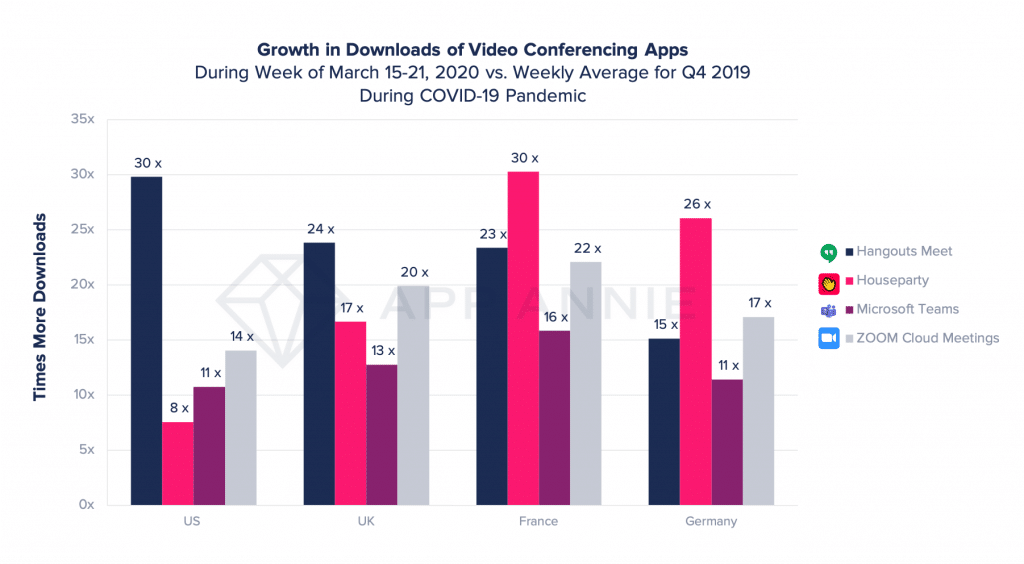The current status of the economy is under duress, with no industry spared from the effects of COVID-19. Hiring freezes, cost-cutting, furloughs: these actions are being implemented by a multitude of companies around the globe to stay afloat. It’s undeniable that the novel Coronavirus has wrapped itself around every industry, continuing to affect all businesses from large corporations to small startups. As we navigate these uncertain times, these are the top 6 industries that have been affected by COVID-19.
1. Health Care:
Health care is undoubtedly one of the biggest industries impacted by COVID-19. American primary health care is under examination as citizens become aware of the conditions medical professionals are working under. We have already seen an increase in telemedicine services in an effort to minimize contact with patients and slow the spread of the virus. Urgent visits are being prioritized and people are encouraged to stay away from clinics and hospitals unless they have a critical medical need. With elective procedures and initiatives being put on hold, a large portion of healthcare revenue has been reduced, leaving clinical staff on furlough or left without work. Healthcare organizations are making moves to test individuals as often as possible and work toward developing a vaccine. This pandemic has brought to light many issues that the health care system is lacking and needs to be re-evaluated to better prepare for the future.
2. Travel & Tourism:
It’s no surprise that travel & tourism is one of the most impacted industries during this time. With strict travel restrictions and stay-at-home orders, hotels and airlines have taken a drastic hit as people strive to stay indoors and stay safe. According to the Bureau of Labor Statistics, 7.7M hospitality and leisure jobs were lost in April. In an effort to stay strong and move toward reopening, many hotels and other hospitality companies have allotted discounted rates during these times. Most states are moving to open during this upcoming month, though consumers still face fears of travel while numbers of confirmed cases rise throughout the US.
3. Telecommunications:
Telecommunication capabilities have also resulted in a reduced need for business travel, with remote connection capabilities bringing endless opportunities. Professionals are spending a lot of time in meetings, with 32% of executives and 21% of employees spending 20 hours or more in meetings each week.
Business communication apps saw record levels of growth in March. According to statistics from mobile market data provider App Annie, enterprise-focused mobile app downloads reached over 62 Million during the week of March 14th, the highest number of downloads seen. That figure is up 90% from the pre-COVID-19 weekly download average.
4. Retail & Restaurants:
Retail stores and restaurants have taken a big hit as people continue to self-quarantine and distance themselves from crowded spaces. Small shops as well as major chains have closed their doors, not able to keep up with the months of strain. Retailers and brands are seeking to adapt by implementing new safety precautions upon entrance. Many businesses are enforcing a “mask on” rule upon entrance and increasing their digital presence to encourage online shopping. Many people have also chosen to embrace their entrepreneurial talents, creating homemade solutions such as masks and cleaning materials to sell to those in need of supplies due to hoarding and lack of stock.
Restaurants are also facing hardships as many people choose to stock up on groceries and other supplies instead of purchasing take out. Some restaurants have opted to sell their fresh produce to bring in extra income and prevent food from being wasted. To-go promotions are flooding email inboxes as small and large eateries make efforts to bring in customers. Contactless pickup and delivery options have also increased to ease concerns of food safety. How the restaurant industry will improve is yet to be seen as businesses open with proper social distancing guidelines these coming months.
5. Logistics & Supply Chain:
People everywhere are turning to the web to purchase items to avoid entering stores, causing online orders to skyrocket and fulfillment facilities to pump out products at lightning speed. Many employees are being overworked, dealing with backed-up shipments, frustrated customers, and long hours. Due to hoarding and lack of supply, businesses are limiting the number of essential items able to be purchased per person. We are seeing drastic results with shortages, rationing, prioritization, and SKU reduction, allowing supply chain and logistic networks to make space for in-demand products.
6. Finance:
Finally, one of the biggest impacted industries surrounds finance. Income for businesses and families has been severely cut, while expenses have increased due to current market conditions. Many creditors and financial institutions will experience late payments from people as citizens prioritize what is essential to fund. In turn, customers may experience damaged credit ratings or increased late fees as a result. Fortunately, most businesses are making resolutions to assist those in need, offering delayed payment options with zero penalties. Many companies are also working to contribute to organizations through relief efforts, donating resources, time, and money to help those in need.
We know that there are many businesses and industries that have been impacted and continue to struggle due to current economic situations. Despite the adverse effects of COVID-19, companies are still hiring and adopting new policies to improve business operations! These are unprecedented times, but we will get through this by staying strong, staying safe, and doing our part to help others. If you are seeking qualified candidates or a new opportunity - Blue Signal can help, connect with us today!

